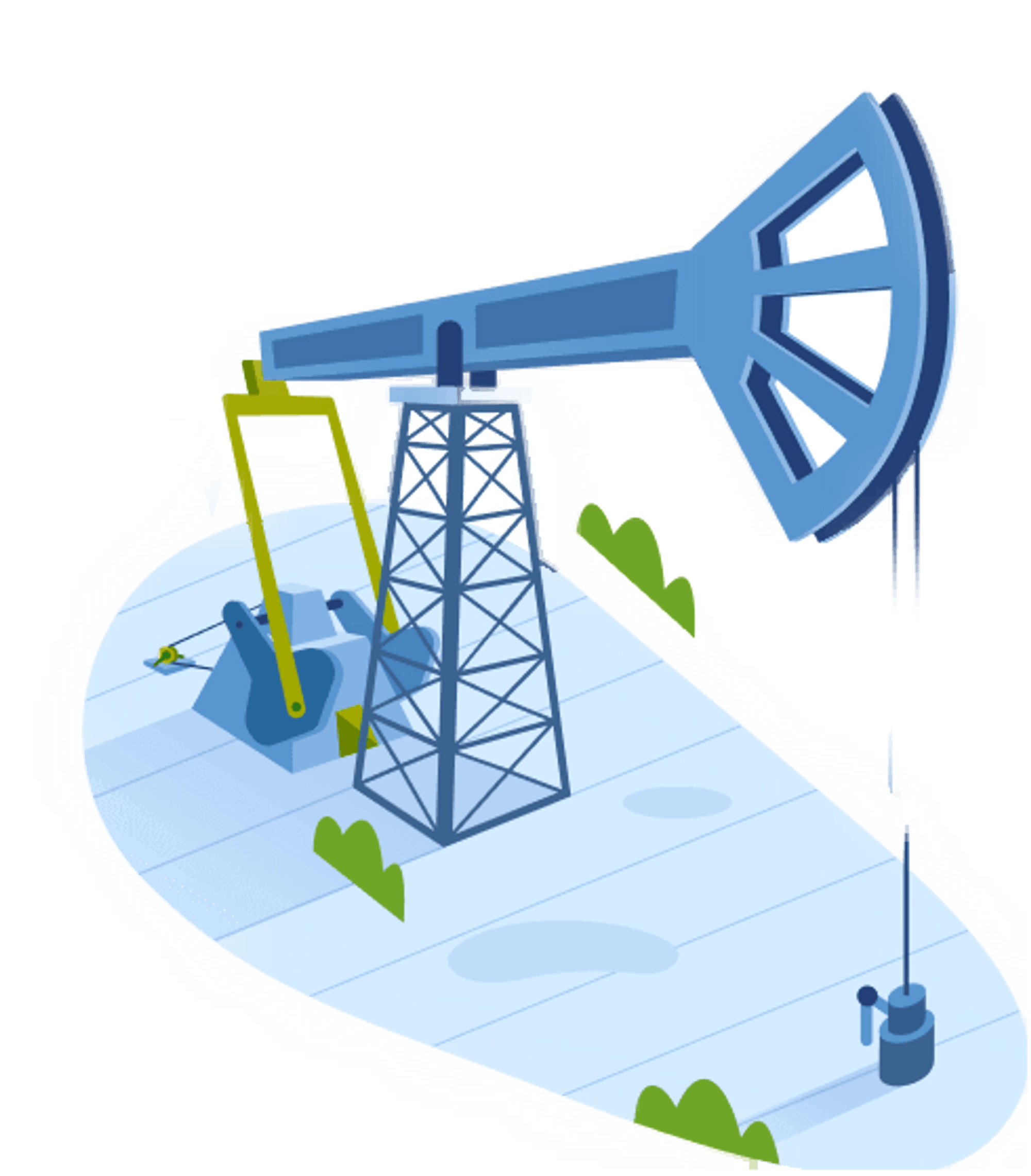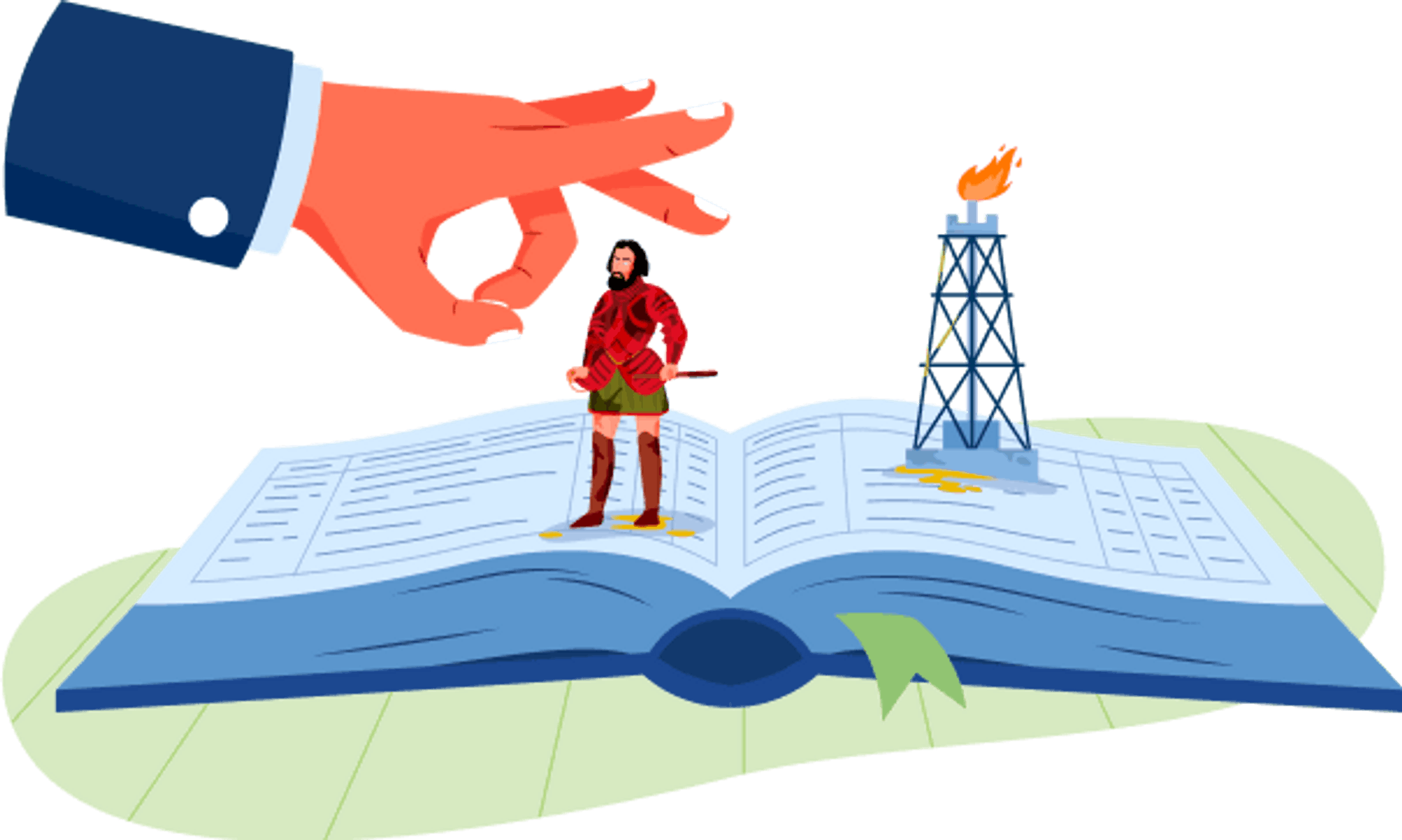A Conquistador, the Climate Crisis, and the Finances of Atrocity
2021-04-12 by Albert R CarterContent warning: violence, sexual assault
Hernán Cortés' greed knew no bounds. Even after he and his 600 soldiers landed in present-day Mexico, toppled the Aztec Empire, murdered some 100,000 people, raped and enslaved uncounted others, and looted its precious stones, gold, and silver, he wanted more.
He went on to launch a smaller but still bloody expedition to the Baja California peninsula, and followed this with another less ambitious expedition of present-day Honduras. He was thankfully never able to embark upon his dreamed-of Asian conquest.
Cortés' barbarism paid, but his conquests continued to shrink. Why? His reputation preceded him. He couldn't get new loans.
Initially, by lending Cortés money, his investors and creditors made possible and even exacerbated one of human history's great atrocities. Later, by refusing to lend to Cortés, they brought his conquests to an end.
When telling the story of Cortés' conquests, we often tell a story about a single greedy man. This story, however, is about money. It is a story about money’s role in enabling Cortés' atrocities and about money’s role in the modern-day atrocity that is the climate crisis. It’s a story that, today, can tell us more than ever.

This System Funds Atrocities
I am no Cortés, but I have resembled his creditors. Like them, when I sleep, my money does not. Instead, it funds all sorts of things. Some of these things, like schools and public health, are unambiguously good. Others are less so.
My former bank used my funds to help people buy houses. It also loaned my funds to carbon-belching power plants that will raise the temperature and the sea level, eventually putting those houses and their mortgages underwater.
One of my alma maters prides itself on sustainability and transparency, claiming that its endowment makes the world a better place. It also routes oil and gas financing secretly through the Cayman Islands.
My health insurer used my funds to pay for doctor visits. It also used my funds to buy bonds from the fossil fuel company that in 2010 flooded the beach near my home with crude oil, refused to give cleanup workers protective gear, and left them to endure seizures, skin lesions, and violent blood-vomiting episodes.
My money is supposed to protect my future. Instead, it’s being used to fund the destruction of our world and the abuse of its people. If you have a bank account, it's likely that your money does this, too.
I hate it, and I want to fight back in the most effective ways that I can. That is why I would like to empower you to regain moral control of your money – your money, but also your family’s money, your insurer’s money, your pension fund's money, and your government’s money. By learning from history and applying these lessons to today's atrocities, we can regain control of our moral stewardship and help to build a better world – a world where murderous conquistadors, slavers, animal abusers, coal mines, and oil rigs need not be financed.
To regain control of our money and our morals, we must first understand how atrocity is funded and then act accordingly.

Financing Atrocity - a tale of equity, debt, and markets
When Cortés set out on his expedition to modern-day Mexico, he needed soldiers and equipment. And just like today's corporate conquistadors, he had two ways to raise it: through "equity" and "debt."
Equity
Cortés was not a rich man and could not directly pay the soldiers he required for his expedition. Instead, he sold equity; that is, portions of the expedition's eventual profits to men (equity holders) willing to join. These "equity holders'' then owned pieces of paper (stock certificates) that they could trade among themselves or sell to anyone else who was willing to buy.[1] As the profits of conquests (or companies) grow, the value of a stock certificate tends to grow with them, at a rate of around 4% to 8% per year.
If the expedition went bankrupt, the equity holders would get nothing. But in return, Cortés would be obliged to obey his equity holders, even if they voted to do something radical, like forbid the slaughter of random natives on the street. This is still how many early-stage businesses, operations, and ventures are financed today.
Debt
Having secured the men required for his expedition, Cortés' merchant friends offered him a loan to pay for ships, weapons, and other equipment. These merchants (debt holders) would initially give Cortés the money he needed, but would be paid back on a schedule, regardless of the state of the expedition. These "debt holders" owned pieces of paper (bonds) entitling them to scheduled payments from the expedition. Debt holders could sell their bonds among themselves or to anyone else who was willing to buy. Debts are considered a safer investment than equity and so “debt holders” typically settle for a lower payment rate of around 2-3% per year. As in Cortés' case, modern day "debt holders" tend to be less numerous than "equity holders," tend to invest individually much larger amounts, and tend to pool their funds.
After securing the loan, Cortés had no obligation to listen to his "debt holders." His only obligation to the "debt holders'' was to pay them back on schedule, even if the expedition was on the verge of bankruptcy.[2] If he did not pay them back, they would have likely had the right to repossess the ships, weapons, and equipment he had bought with their loan. This is still how much of the world's property and equipment are financed.
Primary and Secondary Markets
In 1519, after years of planning, fundraising, and recruiting, Cortés had legally transformed his "expedition" into a "conquest," secured the men, funds, and equipment for it, and set sail. On April 22nd, which is now known as Earth Day, he and his men arrived in present-day, Veracruz, Mexico. As he set sail, Cortés closed the primary market for his equity and debt – his debt holders and equity holders were free to trade paper between themselves and others on the secondary market, but Cortés was no longer permitted to trade with them.
During the conquest, Cortés was able to open a new "primary debt market" to take out additional loans for weapons and medical supplies, but was not able to issue new equity. While issuing debt can be as simple as a trip to the bank, or even to a pawn shop, issuing equity involves working with investment banks and lawyers to give ownership and voting rights to new “equity owners.” As a result, "primary equity markets," then, as now, are harder to open.
Modern companies are financed in much the same way. Their "primary equity markets" are open only during infrequent "public offerings," but bank loans and other forms of new "primary market debt" are available with much more frequency.

Campaigning Against Atrocity
What can we do if we "hold debt" or "hold equity" that funds the Cortéses of today, fossil fuels, or other atrocities? Broadly, financial activists fall into two camps: engagement and divestment.
Engagement
University endowments and pension funds tend to be proponents of “engagement” with atrocious companies. Proponents of engagement argue that holding equity in a company can allow them to positively influence that company’s business practices. They believe this to be especially true when buying equity from less scrupulous investors.
For a secondary-market investor in Cortés' expedition, this might have meant buying equity from soldiers in Cortés' expedition. If ethically-engaged secondary investors bought enough shares, they might have been able to appoint a new Chief Conquistador to replace Cortés. If they didn’t, they might have had to settle with installing a representative board member (or perhaps a “boat member”) who, if all went well, might try to convince Cortés to pursue a less violent business strategy.
Issues with Engagement
The largest issue with engagement may be in its limited reach. Engagement is only possible for "equity holders," and equity finances only 10% of fossil fuel infrastructure. Debt finances the rest.[3] Since "debt holders" do not have control over a company's actions, they have no leverage for engagement.
As Cortés and his men set foot on the Yucatán peninsula, Cortés ordered all but one of his ships to be destroyed. Legend has it that he ordered them to be lit aflame. The wealthy merchant “debt holders” who financed his ships could not have approved of this, but then, as now, there was little they could immediately do to stop it.
Engagement is a potent and growing tool in ethical and environmental finance. Unfortunately, just as Cortés' “equity holder” soldiers were bound by the realities of being in a foreign land and a requirement to obey their commander, in the present day, ethical small-scale “equity holders'' are bound by financial intermediaries and financial regulators’ byzantine voting rules.[4] As a result of these limitations, equity engagement has primarily been successful at producing reports on companies' environmental footprints and business plans for future change, with little further material impact so far.[5][6][7][8]
Divestment
Proponents of divestment are often students and non-wealthy people and organizations. Proponents of divestment argue that lending money to the perpetrators of atrocity gives them both legitimacy to continue their actions and the money with which to do so. They therefore favor a strategy of divestment, or de-funding atrocity. In Cortés' day, this might have meant discouraging men from enlisting and denying his loans, both before and after he began butchering the Aztecs.
Issues with Divestment
The largest issue with divestment may be its effectiveness. Simply put, to people like Cortés, a peso from someone like me is as good as a peso from anyone else. Had Cortés been unable to get a loan from his wealthy friends, he might have gone to the bank and gotten the funds there before setting off on an altogether unchanged conquest. It's easy to think that divestment from the secondary market would have had little effect on Cortés at all, since he didn't participate in it. Fortunately, this isn’t quite right.
What Fossil Fuel Companies Fear

In the modern day, 90% of fossil fuel infrastructure is financed with debt. There are many reasons for this,[9] but the largest is that fossil fuel debt, like a home loan, is typically secured with physical property. This makes debt substantially cheaper (2-3% returns) than riskier equity (5-8% returns).
It's hard to find historical research on Cortés' equity-to-debt ratios, but since his conquest required such large amounts of equipment, ships, and other property, this was probably also true for him. Divesting from Cortés' equity might have meant that he simply raised more money via debt.
Cortés did, however, fear debt divestment. Before the Baja California expedition, he wrote to the King of Spain and Holy Roman Emperor Charles V asking for a loan: "All I have received has been insufficient to relieve me from misery and poverty, being at the moment I write in debt for upwards of five hundred ounces of gold, without possessing a single peso towards it."
Cortés' reputation preceded him. He was suspected of having murdered representatives of the Spanish government, and was thought to have burnt down his ships, the collateral on his loans. (He did have at least one Spanish government representative murdered, but only ordered his ships destroyed, not lit aflame.) The missionaries on his expeditions documented and shared shocking stories of the senseless, bloodthirsty brutality displayed by him and his men.
Emperor Charles V divested, electing not to give Cortés a loan. Cortés resorted to pawning his wife's jewelry to pay for his Baja California expedition, which was far smaller than the Aztec conquest. His next expedition to Honduras was also self-financed. He was never able to fulfill his violent dreams for an Asian conquest. Indeed, creditors hounded him for payments until the day he died.
Fossil fuels companies fear debt divestment, too. For example, coal companies, which have long been the target of environmental campaigns, react similarly to Cortés. Coal executives fret over "rising cost of capital" (a way of saying that they can't easily raise funding) and beg governments for handouts. Meanwhile, environmental campaigners like Heffa Schuecking from Urgewald listen in on coal industry conferences that, "are beginning to sound sort of like sad therapy groups...."
Cortés' conquest was financed by some 600 small scale "primary market equity holders" and only three wealthy "primary market debt holders," and the modern world of large-scale debt works similarly: There are fewer institutions interested in holding large primary-market debts than equity. They tend to invest much larger amounts of money and to be more risk-averse than equity holders. They invest in groups, meaning that a “no” from one is frequently a “no” from all.
This leads to a peculiar property of debt, which many people are all too familiar with: Being denied a past loan from one bank is often sufficient reason for being denied future loans from other banks.
With this knowledge, we can make oil and gas falter in the fundraising process, watching their credit ratings spiral downward as they are continuously denied more and more loans.

De-Funding Atrocity
If you, your parents, or your school own a bank account or investment account, then your money is probably invested in atrocity, including fossil fuels. (Almost all of the largest banks give loans to fossil fuel companies and most investment accounts hold fossil fuel debt and equity.) While the thought of influencing change may seem daunting at first, this provides an effective opening for fighting back.
The climate crisis is a brutal, unnecessary, and avoidable tragedy financed in much the same way as Cortés' brutal conquest of the Aztec empire. Bank loans - a form of debt -finance 64% of all fossil fuel infrastructure[10]; and regular (retail) banks, unlike investment managers or fossil fuel executives, answer directly to their customers.
If retail banks knowingly lose enough customers due to ethical concerns, some of them will stop giving loans to fossil fuel companies. When fossil fuel companies are denied loans by some banks, this can create a domino effect with other banks following suit. Without bank loan financing, much fossil fuel infrastructure could not be built. The same is true of other atrocities as well, from cotton-picking “forced labour” to animal cruelty in factory farms.
If you would like to make your voice heard, make the world a slightly better place and de-fund atrocity, we encourage you to open an ethical bank account. At Bank.Green, we are running a campaign of nonviolent direct action to shift financial resources away from atrocity, starting with bank finance of fossil fuels. We can also help you find a bank account that aligns with your values. We encourage you to join us.
Footnotes:
[1]: This is presented in the way that modern-day “equity owner” arrangements typically are structured. Cortés' conquest took place before the invention of the joint-stock company and so they, unlike modern-day “equity owners,” did not have the ability to directly vote for their conquest’s management.
[2]: A company typically pays debt holders before equity holders. Even in bankruptcy, a company’s assets (gold, ships, slaves, oil rigs, etc) will be sold off to the highest bidder to partially pay back the debts holders.
[3]: Cojoianu, Theodor and Ascui, Francisco and Clark, Gordon L. and Hoepner, Andreas G. F. and Wojcik, Dariusz, Does the Fossil Fuel Divestment Movement Impact New Oil & Gas Fundraising? (April 22, 2019). Forthcoming in Journal of Economic Geography, http://dx.doi.org/10.2139/ssrn.3376183
[4]: Most people "hold equity" through financial intermediaries like "Vanguard" and "BlackRock." These companies vote on behalf of their "equity holders," who are prevented from voting for themselves. There are many campaigns to apply pressure to financial intermediaries or change the rules of voting entirely, but they don’t typically require holding equity.
[5]: Glac, Katherina. 2014. “The Influence ofShareholders on Corporate Social Responsibility.” Economics, Management and Financial Markets9 (3): 34–72. https://ir.stthomas.edu/ocbeblpub/66
[6]: Busch, Timo, Rob Bauer, and Marc Orlitzky. 2016. “Sustainable Development and Financial Markets.” Business & Society55 (3): 303–29. https://doi.org/10.1177/0007650315570701
[7]: Haigh, Matthew, and James Hazelton. 2004. “Financial Markets: A Tool for Social Responsibility?” Journal of Business Ethics52 (1): 59–71. https://doi.org/10.1023/B:BUSI.0000033107.22587.0b
[8]: E. Quigley, E. Bugden, A Odgers. (2020). Divestment: Advantages and Disadvantages for the University of Cambridge. Cambridge: University of Cambridge: 98-111, Appendix V
[9]: Many of the largest fossil fuel companies are nationally run, and do not have tradable equity. New equity dillutes “equity holder” profits whereas debt does not. Interest payments on debt are typically tax-deductible whereas profits paid out in dividends to equity holders are not. Recurring revenue and hard assets make it easier for fossil fuel companies to borrow debt at low interest rates. You can read more at this quora thread
[10]: Cojoianu, Theodor and Ascui, Francisco and Clark, Gordon L. and Hoepner, Andreas G. F. and Wojcik, Dariusz, Does the Fossil Fuel Divestment Movement Impact New Oil & Gas Fundraising? (April 22, 2019). Forthcoming in Journal of Economic Geography, http://dx.doi.org/10.2139/ssrn.3376183
This article was partially facilitated by research conducted by E. Quigley, E. Bugden, and A. Odgers at the Cambridge Centre for the Study of Existential Risk in their report, “Divestment: Advantages and Disadvantages for the University of Cambridge,” released on 01 October 2020
Special thanks to Eva Neu and Matt Bell for editing.
Start to Bank Green Today
Banks live and die on their reputations. Mass movements of money to fossil-free competitors puts those reputations at grave risk. By moving your money to a sustainable financial institution, you will:
Send a message to your bank that it must defund fossil fuels
Join a fast-growing movement of consumers standing up for their future
Take a critical climate action with profound effects